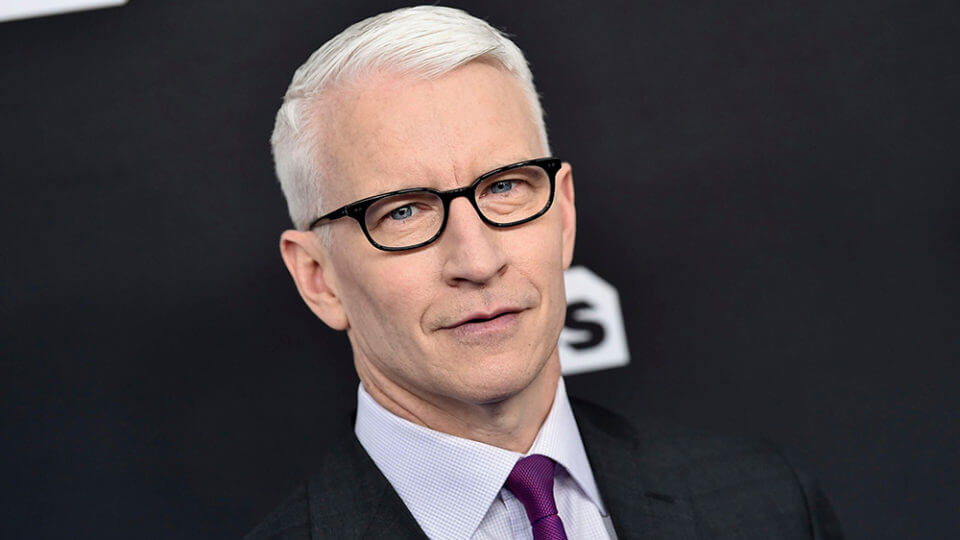
“I hope that on Tuesday, Anderson Cooper—and all journalists wrestling with the same question—show up to the polls.”
With Election Day just upon us, record numbers of Americans—young and old—have been flocking to polling locations. It seems like nearly everyone is making their voice heard—that is, everyone except for presumably Anderson Cooper.
The CNN anchor made headlines during the 2016 election cycle when he admitted to Howard Stern that in most elections he doesn’t vote. When pressed on the rationale behind this decision, Cooper said: “I’ve gone back and forth on it. I don’t want to be influenced one way or the other.. I don’t like feeling like I’ve taken a stand. I think it’s something you actively need to fight against [as a reporter].” This interview may have happened two years ago, but I’m certain that many other journalists experience similar thoughts come each election day.
I won’t be taking the “voting is a civic duty angle” for this piece. While that may very well be the case, it does little to convince someone who is considering sitting an election out. After all, when it comes to completing most other duties, you can nearly immediately see an effect or understand the impact that it will have on the long term. With politics that isn’t always the case; sometimes the effects of an election take years to materialize. In this debate, it is thus necessary to take a more generous angle to actually convince the dejected journalists that may be among us, as opposed to berating them with the same rote line they’ve heard since elementary school.
Asking whether a reporter should vote calls into question the power of bias, something that all of us have. The fact that Anderson Cooper said what he said shows that he’s cognizant of that, but I don’t think anybody needs to do extensive research on his background to realize that he has his political leanings. That’s not a knock against him in any way, as anybody who’s politically engaged can easily think of biased reporters all across the political spectrum—Sean Hannity and Tucker Carlson immediately come to mind for the right. Look no further than the partisan and loaded words and phrases that they use.
This self-realization directly contradicts what he said in the interview, however, as even though he doesn’t “want to be influenced one way or another,” he is without a doubt already influenced. It is somewhat odd to think that not voting would change that, especially considering Cooper’s position as a political anchor for CNN; it’s absolutely impossible and inhuman not to have a personal political opinion when you’re sifting through the daily happenings in politics 24/7. But that’s just it: as long as you can identify what that opinion is, you are now conscious of your potential to report from a perspective of bias. But it’s self-awareness that allows you to remove the weight from your words.
The biggest tell as to whether voting abstention actually works is to look at the ethics codes of some of the more neutral reporting groups, like the AP and Reuters. Neither consider not voting to be a necessary or even viable check on bias. Even though the former has a ban on political activities like holding office or making donations, it is only because the “opinions they express may damage the AP’s reputation.” This brings up a second important point: because voting is a private activity, nobody knows that you’ve “taken a stand.”
Still, what has been said isn’t enough—there’s still more to be discovered in what he revealed. The key line of his response is “I don’t like feeling like I’ve taken a stand,” with the crucial term being “feeling.” This also shines a light on why he “[goes] back and forth on [not voting],” as it’s a feeling and not a logical conviction. A feeling of what though? Guilt. Much of his response—including that which isn’t quoted here—revolves around what he sees as his role, which he explains “is to ask questions.” Ask questions for what purpose though? To inform the millions of people that watch CNN daily. Thus, when he votes and makes that private stand, he unintentionally conflates what he’s done with his work in the social sphere with his private thoughts in a voting booth.
Cooper needs to realize that his supporters and watchers understand that he has biases, as all of us, reporters and otherwise, do. Despite this, viewers still tune in to hear his presentation of the news. As long as he makes the effort to clamp down on his bias, he can be confident that he’s working with journalistic integrity, and I hope that on Tuesday, Anderson Cooper—and all journalists wrestling with the same question—show up to the polls.
Matthew Pinna is a student at the University of Chicago.










